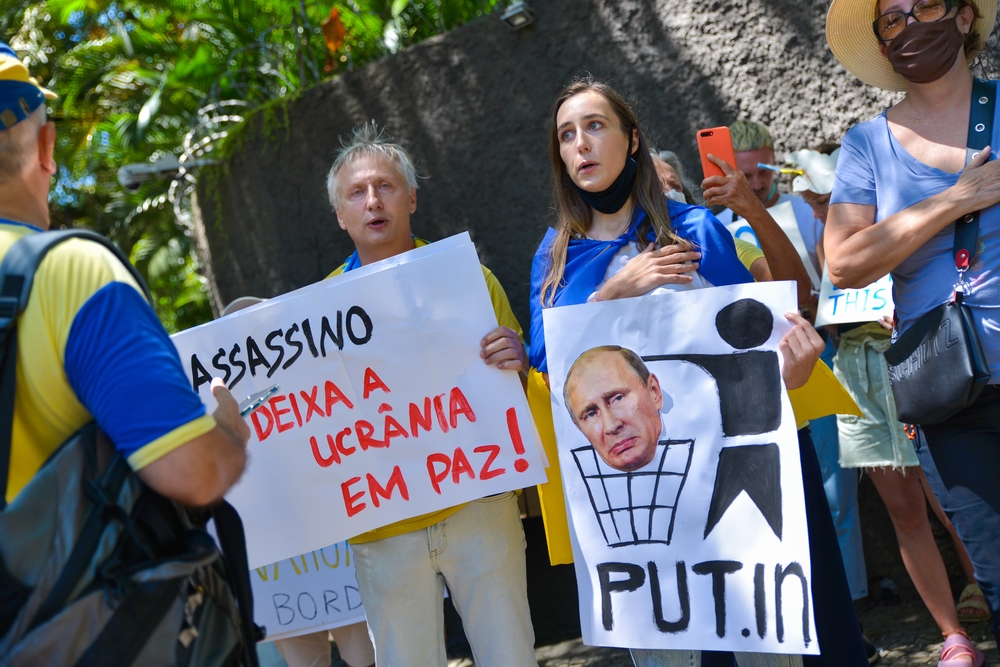An Ipespe survey released this Friday shows, for the first time, the perception of the Brazilian population about the war in Ukraine. The majority of respondents showed support for Ukraine, though public opinion is divided about the Brazilian government’s approach to the conflict.
Nearly 100 percent of respondents had heard about the conflict, and 56 percent believe Ukraine is “more right”. Only 8 percent took Russia’s side. Another 17 percent believe that neither side is right, and 3 percent say both countries are justified in their demands.
Even so, the majority of respondents said that Brazil should remain neutral in the conflict, which has been the government’s stance since the beginning, straying from many Latin American neighbors and global trading partners. One-third of the population would like far-right President Jair Bolsonaro to support Ukraine “more openly.”
The president’s stance on the conflict is seen as “totally or partially correct” by 42 percent, and “totally or partially wrong” by 48 percent.
In the view of Antônio Lavareda, director of Ipespe, Mr. Bolsonaro’s visit to Vladimir Putin a few days before the invasion of Ukraine had practically no impact on public opinion. “It was roundly criticized, but it doesn’t seem to have had any negative effects on this dimension,” he said.
Mr. Lavareda points out that the conflict has not yet been politicized in the country, which may contribute to the split opinion throughout the population. However, it is likely that the conflict will play a significant role in Brazil’s presidential election in October, as war has become a greater cause for fear than the Covid-19 pandemic. According to the survey, 65 percent of people are afraid that the conflict will spread, while 48 percent declared that they are “not afraid” of the coronavirus.
“We are far from having a definitive picture. When the effects of the war are felt more strongly, it would be a good idea to revisit the issue,” said the researcher.
The same poll also showed voting intentions for this year’s presidential election. Although former President Luiz Inácio Lula da Silva continues to lead in all scenarios, Mr. Bolsonaro is staging a gradual recovery.
The government’s approval rating has risen four points since January, to 27 percent. Despite this, Mr. Bolsonaro’s rejection rate remains high, and 51 percent classify the government as ‘bad or terrible.’


 Search
Search






































